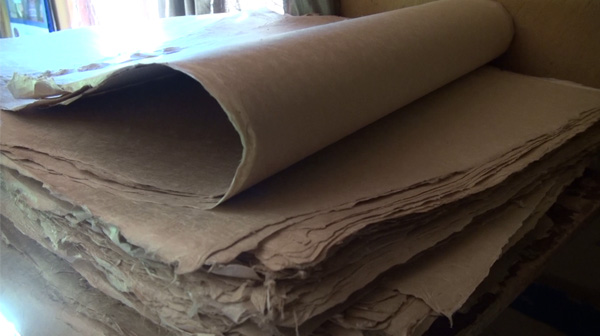 After the COVID-19 pandemic disrupted business in the country, many are still finding it hard to recover. However, the Hand-made Paper factory at Tagma in Zhemgang has had a different story for some time now. For the first time in a decade, the business is flourishing.
After the COVID-19 pandemic disrupted business in the country, many are still finding it hard to recover. However, the Hand-made Paper factory at Tagma in Zhemgang has had a different story for some time now. For the first time in a decade, the business is flourishing.
Over the last decade, the local hand-made paper, commonly known as Deh-Sho, never had a good business. Besides those involved in bark extraction, one person was enough to handle the production works. But today, the factory is busy, preparing to supply over 100,000 papers abroad.
“So far, we have been mostly supplying to the local market. But this time, we are getting orders from abroad,” said Nima Tshering, the proprietor of the factory.
Besides a boom in the business, the factory employed 17 additional people recently, providing employment to youth in the locality.
One of the employees, Sangeeta, said that while it is difficult to find a decent job in urban areas, she said finding a job in the village is a relief.
They are paid Nu 7,000 per month.
“They pay us the salary without any problem. It is better to work here than in Thimphu because there, we can’t even afford to pay the rent,” said Kamala Rai, another employee.
First, bark from a special species of plants is boiled after which the fibres are separated and pounded to make pulp. It is then mixed with starch from vegetables and trees in a vat. Then a bamboo screen filter is dipped into the vat and swished around to allow a thin layer of the mixture to spread over the screen. It is then let to dry. The process takes 24 hours.
The paper is used as a gift wrapper, to print religious manuscripts, making envelopes and carry bags among others. And each paper is sold at Nu 50 to 70 in the market.
The Tagma Handmade Paper Factory was established in 1999 and has about 45 permanent employees today.
Meanwhile, the paper is also among the six products certified by the Bhutan Standard Bureau (BSB) last month.
Pema Samdrup, Zhemgang
Edited by Chayku







